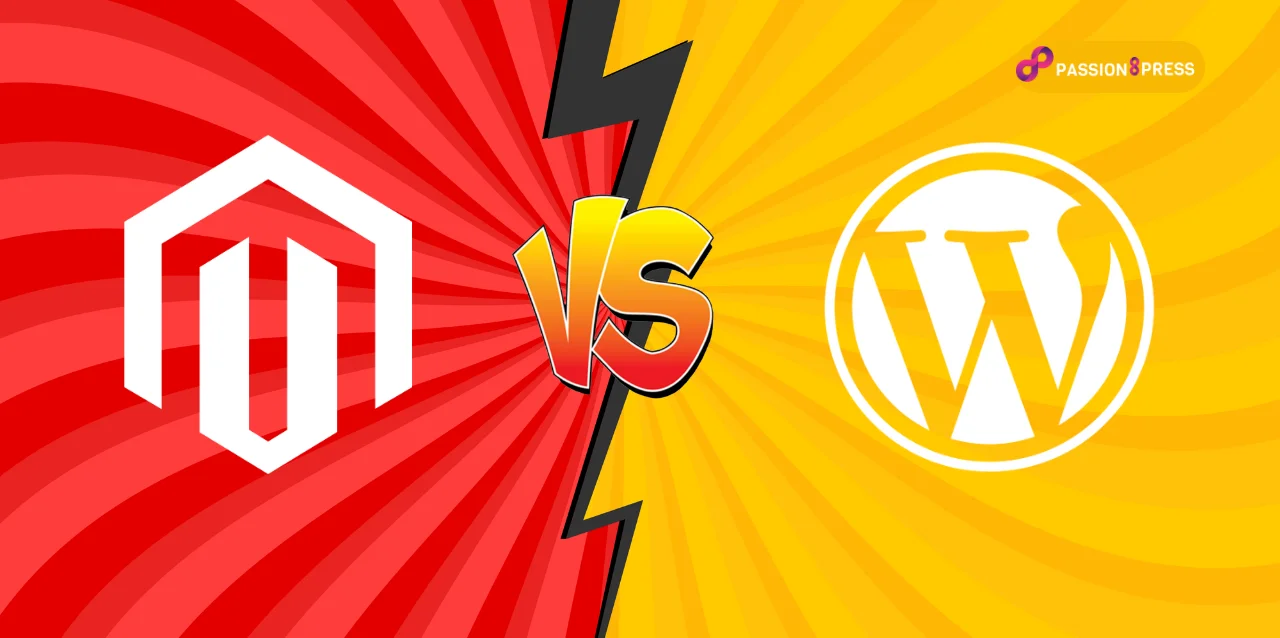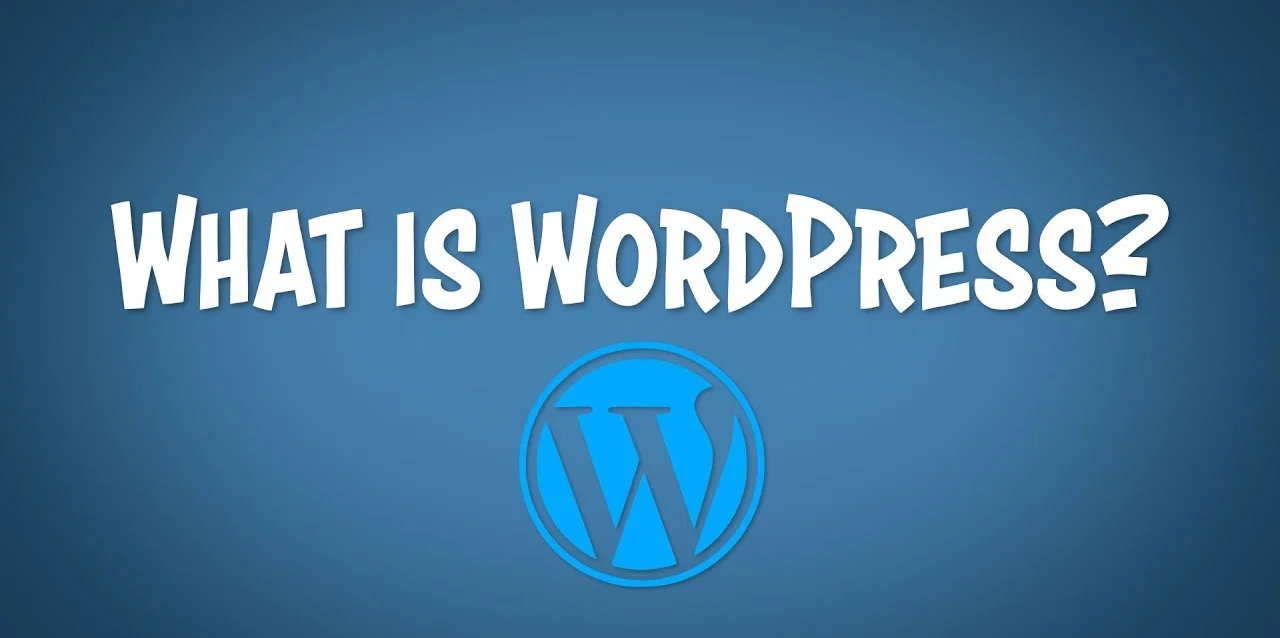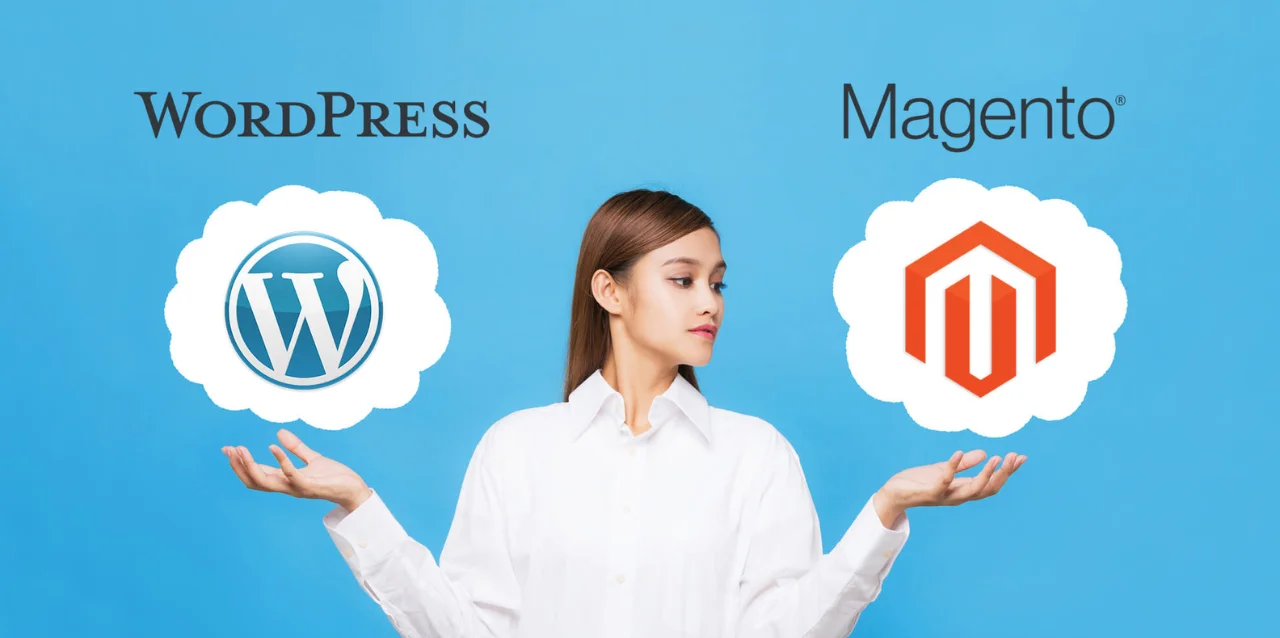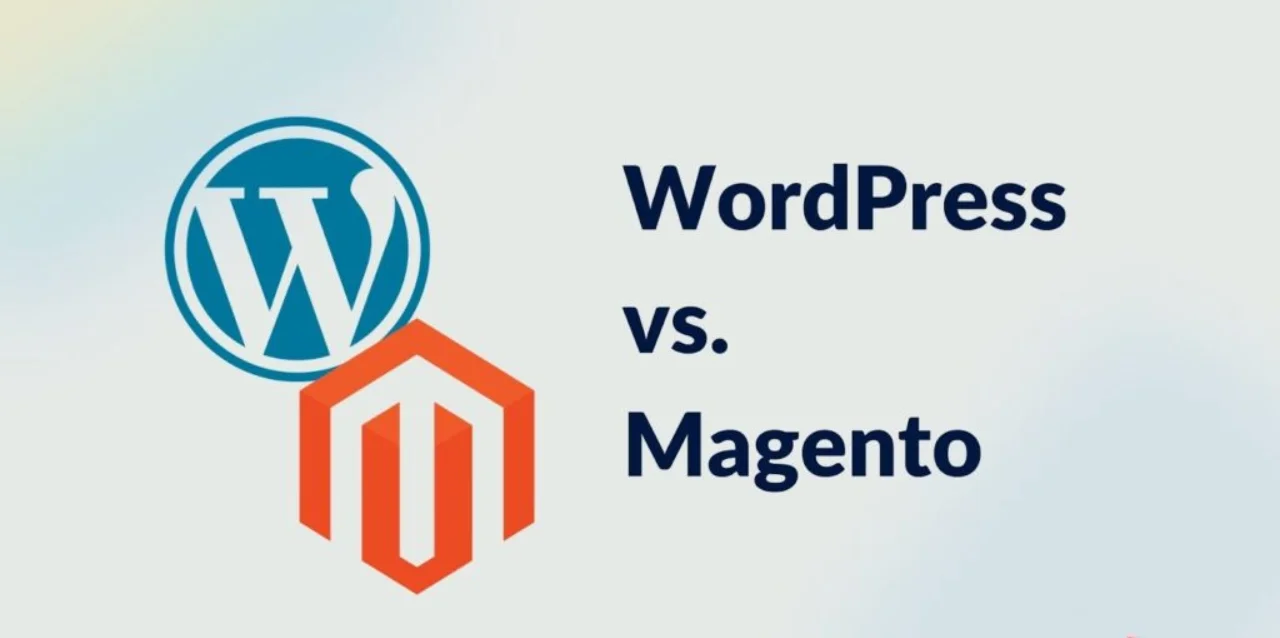If you’ve ever worked on an e-commerce site, you’re likely aware that creating your online store is a formidable challenge. The most significant challenge arises when deciding between Magento and WordPress as the platform for your e-commerce venture.
Amid the array of renowned and well-established platforms for constructing online stores, selecting one that aligns with your business needs and resonates with you, especially as a developer, poses a daunting task.
Within the vast spectrum of e-commerce development platforms, Magento and WordPress stand out as the foremost names commonly employed for building online stores.
This article aims to streamline your options for Magento and WordPress, offering insights into the similarities and differences between Magento vs WordPress.
So, it equips you to make a well-informed choice regarding the superior platform for crafting your e-commerce storefront.
Listen To The Blog Post!
What is Magento?
Magento is an open-source e-commerce platform renowned for its robustness and flexibility in building online stores. Developed using PHP, Magento offers a comprehensive suite of tools and features to create and manage e-commerce websites catering to businesses of various sizes and industries.
Maximizing Magento’s potential demands either adeptness in handling its technical aspects or the financial capacity to enlist professional assistance. Notably, Magento is one of the best options for those primarily aiming to amplify e-commerce sales.
What is WordPress?
WordPress is a widely used, open-source content management system (CMS) primarily known for its user-friendly interface and versatility. Initially built for blogging, it has evolved into a highly adaptable platform that powers a significant portion of the internet, encompassing websites ranging from simple blogs to complex e-commerce stores and corporate websites.
For those venturing into e-commerce through WordPress development, it is a pivotal step that involves installing WooCommerce. This dedicated online store extension, designed specifically for WordPress sites, mirrors the platform’s adaptability.
WooCommerce seamlessly integrates a storefront, shopping cart, and checkout functionalities into your WordPress website, bolstering it with diverse store management tools to foster the growth of your online retail venture.
Similarities Between the Two| Magento vs WordPress
At first glance, both platforms appear to have similar architectures. Magento and WordPress are both free, open-source software options for eCommerce websites. It grants you extensive scalability and customization possibilities.
Additionally, due to their diverse customization features, they both support SEO and allow free theming. Overall, managing your content is straightforward and efficient on either platform, enabling easy additions, alterations, and management.
Nevertheless, proficiency in both WordPress and Magento requires a considerable level of technical expertise. As a result, mastering these platforms might prove challenging for individuals without technical backgrounds or those new to these systems.
Some Key Differences Between The Two| Magento vs WordPress
The core distinction between Magento and WordPress lies in their focus: Magento is a premium CMS explicitly tailored for e-commerce websites. Whereas WordPress is a versatile CMS that prioritizes content management.
Let’s delve into how these design directions manifest across the diverse features of a CMS
Magento vs WordPress: Ease of Use and Adaptability
Magento serves as an online platform specifically for constructing e-commerce websites. Consequently, it involves more intricate coding applications, rendering Magento comparatively more complex than WordPress for online store development.
For beginners, Magento’s array of website design tools might pose challenges. However, leveraging the expertise of professionals allows access to over 20 advanced Magento products, facilitating the creation of exceptional online stores.
Regarding flexibility, Magento has some constraints as it solely caters to e-commerce-related functions. Nonetheless, armed with its distinct extensions, robust features, and ready-made functionalities, Magento empowers the design of remarkable e-commerce websites
WordPress, renowned for its simplicity, boasts intuitive, user-friendly features, making content publication a breeze. It offers numerous easily accessible e-commerce plugins, enabling even novices to establish an online store effortlessly.
The platform simplifies content customization and editing for e-commerce websites. With WordPress’s adaptable functionalities, users can seamlessly integrate various features such as contact forms, one-page checkout processes, live chat boxes, inventory, and product catalog management.
It offers greater flexibility and user-friendly attributes compared to Magento when constructing an e-commerce website.
Magento vs WordPress: Themes and Templates
The prime choice for WordPress users seeking themes is the WooCommerce Storefront most popular and available for free. This adaptable WordPress theme seamlessly integrates with WooCommerce, allowing a focus on content creation while concurrently bolstering sales. Opting for one of the WooCommerce-specific plans automatically installs the Storefront theme.
Contrarily, Magento users, particularly those managing large enterprise-level websites, often opt for custom-paid themes. The cost for bespoke themes varies significantly, ranging from $600 to $25,000, depending on the scale of the e-commerce business.
Magento vs WordPress: Plugins and Extensions
Magento’s marketplace offers free and paid extensions, covering diverse areas from accounting, content, and customer service to marketing, payment gateways, and security.
On the other hand, WordPress boasts an extensive plugin library, housing over 58,000 free and commercial plugins. This abundance ensures access to plugins meeting logistical, technological, and marketing requirements.
Magento vs WordPress: eCommerce Capabilities
While both platforms are robust for e-commerce, Magento holds the edge in providing intrinsic sales capabilities such as displaying recently viewed products, configuring free shipping, setting varied pricing for distinct customer types, and offering a streamlined one-page checkout.
WordPress lacks these integrated e-commerce features and necessitates the installation of a specific CM plugin for WordPress, potentially incurring compatibility, maintenance, and upgrade challenges.
Magento vs WordPress: Marketing and Content Management
For e-commerce ventures, Magento’s content management system equips users with tools for content creation, catalog management, customer data aggregation, order processing, promotional launches, and sales analytics.
Its infrastructure allows extensive content optimization for search engines. Conversely, WordPress, originally a blogging platform that evolved into a CMS plugin for WordPress, is better suited for simpler websites or blogs, requiring additional plugins for e-commerce functionalities.
Magento vs WordPress: SEO
Both platforms arrive with SEO tools and support from modules and plugins. WordPress relies on well-coded themes and plugins like Yoast SEO for comprehensive page information.
Magento is not primarily content-focused- It provides fields for meta keywords, titles, and descriptions, albeit needs more effort for content optimization. Various Magento extensions assist with SEO, including WordPress integration for expanded content space, page speed optimization, and daily on-page issue reports.
Magento vs WordPress: Blogging
WordPress excels in blogging due to its origins, offering a robust platform for managing blog content. While Magento allows blog posts, its functionality isn’t as extensive.
Magento supplements this with various plugins and extensions for tailored blog experiences, whereas WordPress offers a comprehensive blogging environment with easy content management.
Read More:
A Step-By-Step Guide To WordPress Plugin Development
Top 10 WordPress Development Best Practices To Make Your Website Shine
Magento vs WordPress: Security
Both platforms prioritize security with regular updates and patches. Magento, written in PHP, benefits from frequent language updates addressing security concerns, while WordPress, written in Java, may have less frequent updates.
Magento offers default security features such as scans, Two Factor Authentication (2FA), and backups, enhancing its security stance compared to the default WordPress setup, although WordPress has numerous security plugins available.
Magento vs WordPress: Support
Support services play a crucial role in platform maintenance. While both platforms lack official support, community-based forums exist to assist. The quality and reliability of responses may vary.
For reliable support, users can hire WordPress developers, such as Passion8press, offering comprehensive WordPress development services committed to delivering exceptional business solutions.
Moreover, it specializes in WordPress development to craft dynamic and engaging websites and ensures a lasting impact on the audience. Their services encompass various features, including cutting-edge E-commerce solutions designed to drive conversions and expertly tailored WordPress plugin development.
Also, it excels in plugin and theme customization and enhances functionality and design to meet client needs precisely. WordPress outsourcing can help businesses prioritize website performance, guaranteeing lightning-fast loading times through meticulous speed optimization techniques.
Final Thoughts
WordPress vs Magento- Both are excellent platforms suitable for businesses of varying scales aiming to create online stores. The choice between these platforms ultimately hinges on personal preferences: Magento proves beneficial for business-oriented e-commerce sites, whereas WordPress shines for products emphasizing content marketing.
If you’re navigating for options to incorporate e-commerce into your website, then understand it can be overwhelming. We’re available to assist. For any inquiries about our services, please feel free to contact our team.












